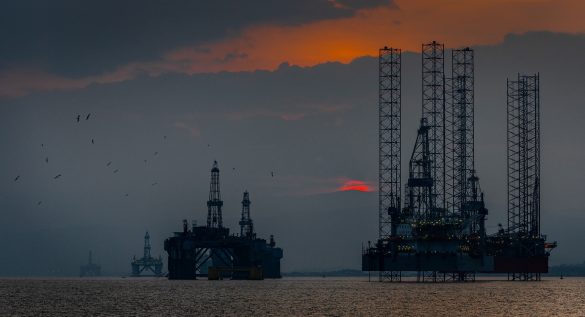In the era of dynamic leadership under President Colonel Mamadi Doumbouya, Guinea-Conakry is on an ambitious journey to develop its oil and gas sector. Spearheaded by the National Oil Company Société Nationale de Petroles (SONAP), the nation is making remarkable progress in attracting investments to this promising industry.
While the exact extent of Guinea’s hydrocarbon reserves remains unconfirmed, its strategic location within the MSGBC region places it in a favorable position. Guinea’s proximity to countries with substantial hydrocarbon discoveries, including Ivory Coast, Senegal, and Mauritania, underscores its potential for exploratory success. Presently, all 27 offshore blocks and seven onshore basins in Guinea are open for exploration and prospecting.
Leading this charge in exploration is SONAP, an institution operating under the direct purview of the Presidency. SONAP is responsible for upstream petroleum administration, downstream sector regulation, and holds the exclusive mandate for oil imports into Guinea. In a recent interview with Energy Capital & Power, Aida Souaré, Head of Petroleum Promotion at SONAP, provided insights into the government’s strategic approach to developing the sector.
Souaré affirmed, “Guinea’s emergence as a potential energy hub is not merely a vision; it’s a well-calculated move by the government, spearheaded by President Colonel Mamadi Doumbouya.”
Under the leadership of Director General Amadou Doumbouya, SONAP has embarked on an ambitious campaign to promote Guinea’s hydrocarbon potential, both within Africa and globally. As part of these efforts, SONAP recently completed the National Seismic Data Visualization Center, a critical resource showcasing Guinea’s impressive hydrocarbon potential.
“Presently, Guinea boasts a seismic data inventory encompassing 15,000 km² of 3D seismic and 45,000 km² of 2D seismic. Furthermore, the nation has drilled three wells, each yielding reports that confirm the presence of a robust petroleum system,” Souaré explained.
The future entails extensive 3D seismic coverage in Guinea’s offshore regions, gravity and magnetic surveys onshore, and further studies to enhance the nation’s attractiveness to global investors.
Guinea’s government has diligently paved the way for investment. The establishment of APIP Guinea, the private investment promotion agency, and the modernization of the petroleum code underscore the nation’s commitment to creating an investor-friendly environment. Souaré continued, “These measures are designed to attract foreign direct investment, facilitating the growth of Guinea’s energy sector.” Guinea’s overarching strategy is clear: intensify seismic campaigns to identify potential leads and subsequently issue comprehensive tender offers across all blocks, attracting renowned global oil operators and fostering sustainable development.
Historically, Guinea has grappled with retaining value from its resources, especially in the mineral sector. Despite being the world’s second-largest bauxite exporter, the majority of its processed aluminum products are imported. Currently, the nation has only one alumina refinery, prompting the government to draft laws mandating refineries for all producers.
In the energy sector, Souaré emphasized that the Guinean government and SONAP are proactively addressing a similar issue. SONAP is committed to enhancing value addition by ensuring equitable distribution, investing in critical infrastructure, upholding contractual obligations, and creating employment opportunities to drive wealth generation and reduce poverty.
As Guinea embarks on its journey to harness its energy resources for the benefit of its citizens, the nation is steadfast in engaging responsibly with the global energy community. Guinea’s commitment to sustainable development and equitable wealth distribution bodes well for the future of its burgeoning energy sector. With global attention focused on this promising nation, Guinea is on the path to unlocking significant hydrocarbon potential because, as Souaré aptly concludes, “countries may have boundaries, but geology does not.



